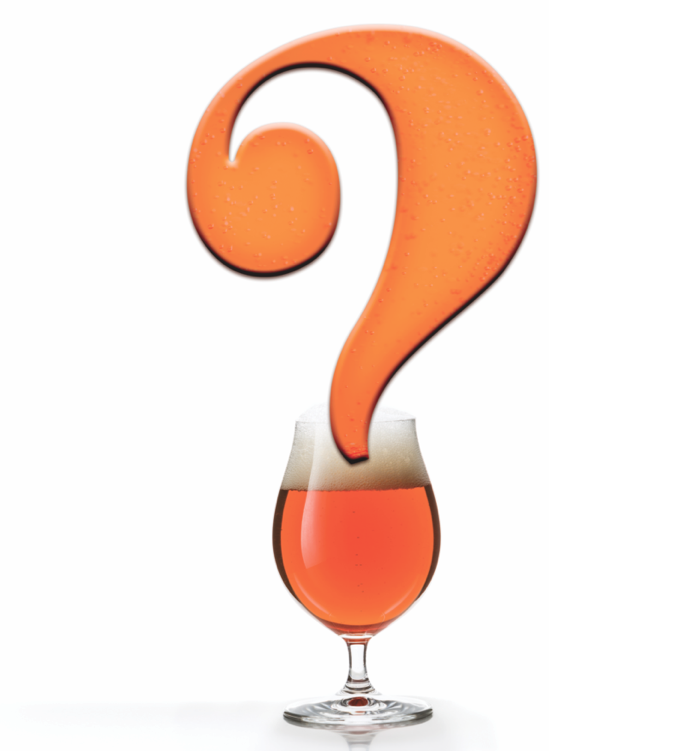Cleaning beer glasses?
Q: Can you explain the do’s and don’ts of cleaning beer glasses?
— Chris Patterson • Downers Grove, Illinois
A: With beer glasses, the don’ts are much more critical than the do’s. The biggest no-no is leaving any type of soap or fat on the glass surface. These compounds will ruin beer foam before it ever has a chance. Just last night I had a delicious hefe-weizen served in a traditional 0.5 liter weizen glass. When the beer came out it had a thin, pathetic crown of foam sitting sadly on top of the beer. I swirled the beer in hopes of creating some more foam and had no success. What little foam that was present didn’t even cling to the glass I as swirled in vain. The problem was the glass – some compound was interfering with my beer foam! The real tragedy was that this happened at the same brewery where I work. What happened to my weizen foam is all too common in bars and restaurants.
My guess is that several unfortunate events lead up to the problem. For starters, cleaning beer glasses begins with clean wash water. If you plan to wash your beer glasses at the same time that you wash other dishes, be sure to wash your beer glasses first. Some brewers think that it is necessary to use special detergents for beer glasses. Personally, I think ordinary dish soap is the best thing to use.
The next item you need to properly clean your glasses is a clean sponge or dishcloth. These items are too frequently overlooked and a grimy cleaning implement can quickly add oils to your clean dishwater and beer glass. When cleaning the glass, pay special attention to the rim of the glass since this is where food fats and lipstick accumulate.
Finally, thoroughly rinse the glass with warm water and allow the glass to air dry. The problems that happen in a busy bar can just as easily happen at home if you are not careful. Clean dishwater is a very big deal. In an ideal world, beer glasses are never washed in the same area as glasses or dishes containing fat. In a bar, many drinks contain fat from milk or cream and bartenders are too busy to look out for the glass that contained a cream drink for special handling. Usually the greasy culprit comes back to the bar and is plunged in the glass sink where it releases its oily soil.
Another bar problem is the use of sanitizers. Most states require bars to use sanitizers in their glass sinks. While this is good health policy, the sanitizer either causes the glass to smell like a swimming pool (chlorine-based sanitizers) or ruins the foam (quaternary ammonium sanitizers). Usually, bartenders will gladly rinse beer glasses with water before use if you ask them nicely and explain your request.
Whatever you do, never put beer glasses in a household dishwasher. I don’t know why, but dishwashers cause glasses to smell really funky over time. I think it may be caused in part to mineral scale on the glass surface. I have successfully rescued glasses tainted in dishwashers by washing them with white vinegar followed by hot, clean, soapy water. The other problem with dishwashers is that they wash all dishes simultaneously and you can’t avoid the spaghetti sauce from last Monday’s dinner being sprayed on your favorite beer glass. Even if the glass is not soiled by the other dishes, it just doesn’t seem like the right way to treat such an important item!



